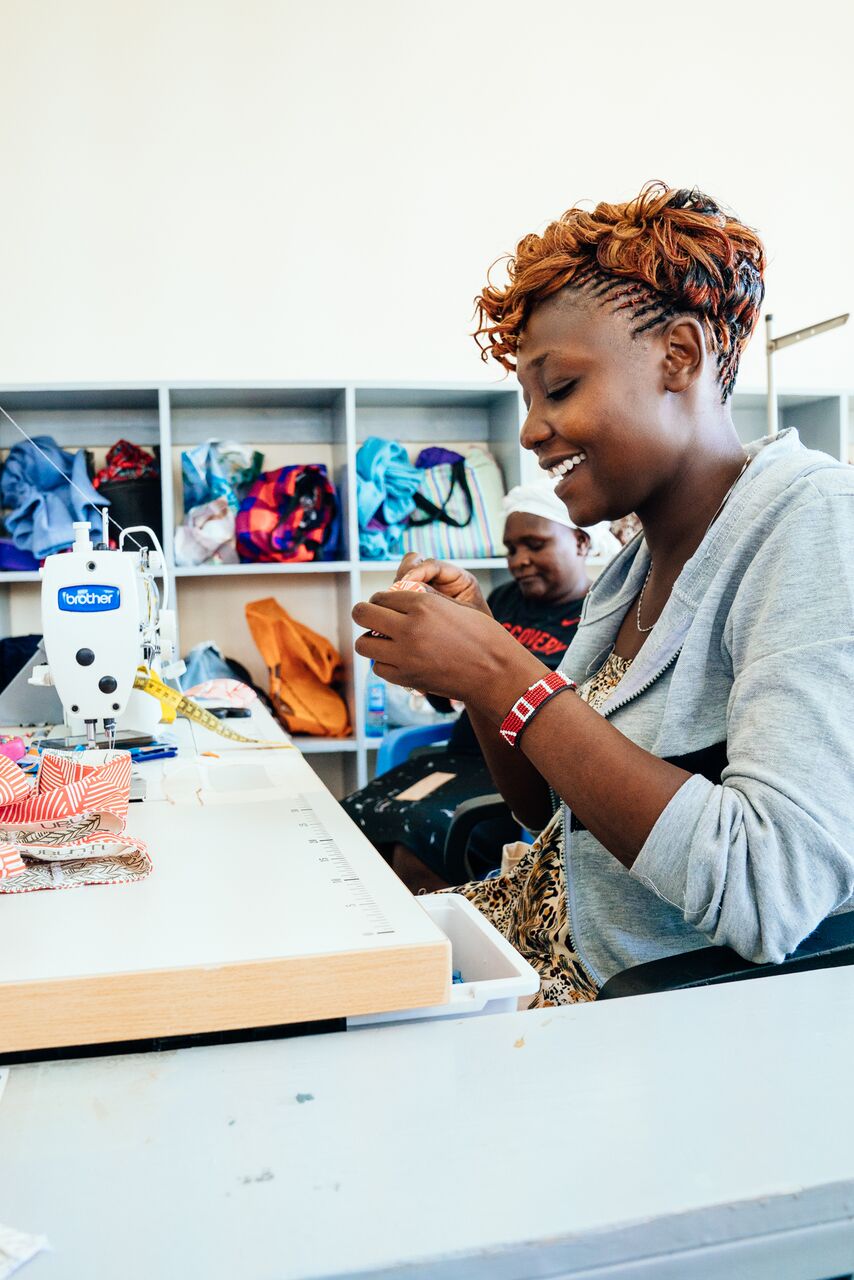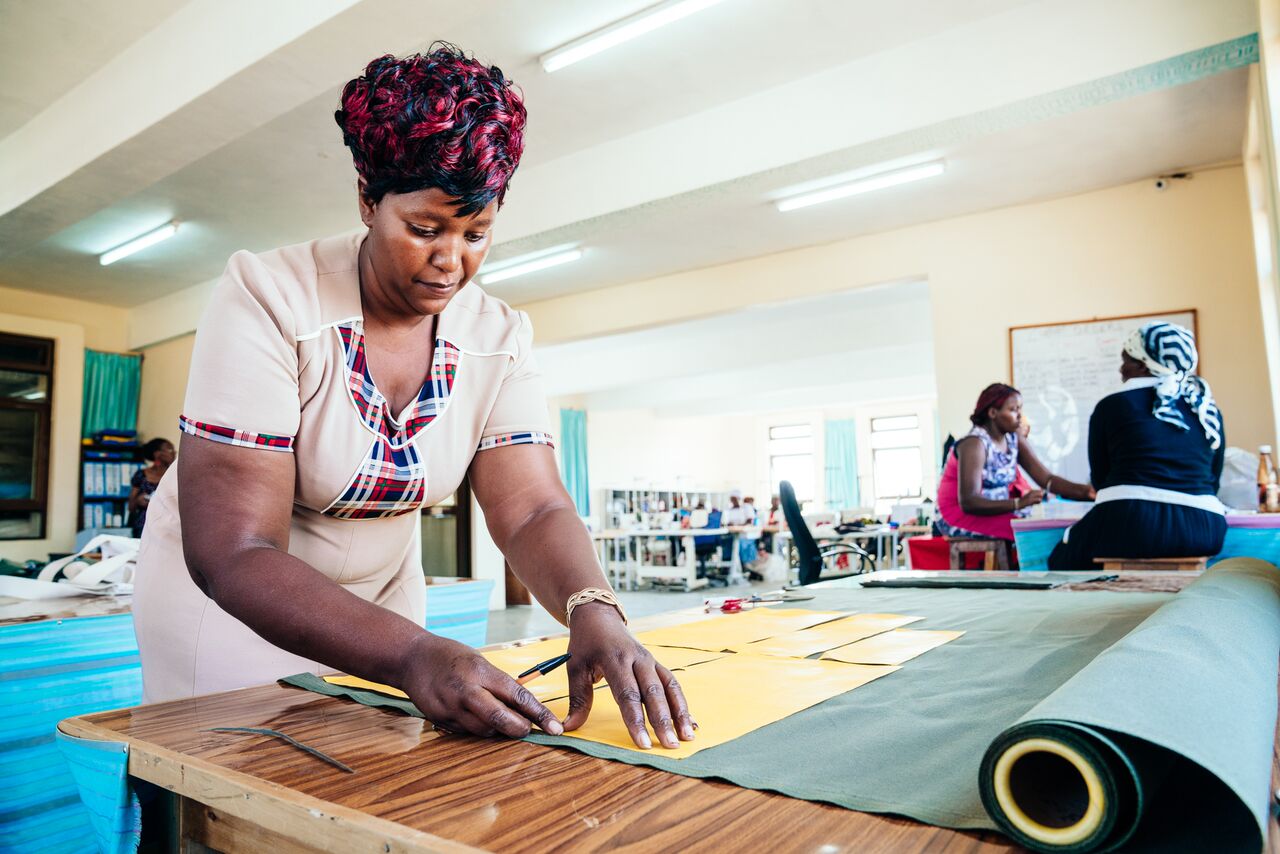
Share this Article


by Lillian Fallon
A passionate supporter of the sustainable fashion movement.
The consumer landscape is changing at lightning speed. The golden era of brick-and-mortar department stores has come to an end while the fast fashion industry continues to thrive (for now). The sustainable fashion movement, however, is gaining and adapting to the ever changing retail climate. A climate that evolves as technology advances, delivering purchases with the tap of a finger.
We are, of course, talking about e-commerce. In fact, online shopping has been the catalyst in making the sustainable fashion movement mainstream. Not only has online shopping shuttered the doors of many fast fashion stores, but it’s also allowed ethical brands to gain the attention of new audiences.
E-commerce has empowered the sustainable fashion movement to flourish, providing a powerful antidote to the fast fashion industry. Here’s how.

1. Education & transparency
E-commerce empowers brands by providing the opportunity for transparency. Ethical brands have used this to their advantage, using their platforms to share their mission while simultaneously educating and providing a way for customers to make an impact.
With just a few clicks, customers are able to learn all about the labels they’re buying from. Ethical brands have led the way, providing information on their product’s sourcing and the artisans who make their products. Videos and photos give customers an insider look, allowing them to follow along in the production and manufacturing of their purchase.
Here at Ubuntu Life, we give insight into the lives and workspace of our Maker Mums who craft everything from our stunning handmade canvas espadrilles, to our bags, jewelry, and wallets. Ubuntu Life’s handmade products fund health and education programs, creating meaningful employment that directly impact communities in Kenya.
2. Endless options at your fingertips
Last year, The Business Of Fashion published an article that revealed 60% of global millennials were willing to spend more on brands that are sustainable. Only 37%, however, actually shopped sustainably. The op-ed boils the problem down to a lack of product availability.

E-commerce is eliminating this problem by proving there are hundreds of options to choose from, all available at your fingertips. Ethical fashion no longer bears the stereotype of being frumpy or lacking in variety. Online shopping allows customers to easily scroll through different products and brands, giving them access to hundreds of different labels.
Websites like The Good Trade and Good On You keep consumers up-to-date on new ethical brands as well as new collection releases. One click onto either of these platforms reveal ethically made items to be just as unique as they are stylish.

3. Social media
The sustainable fashion movement community is full of passionate individuals who are eager to spread the mission and share their ethical purchases. In recent years, influencers like Dearly Bethany, Jess With Less , Sustainably Chic, have amassed nearly 100k followers each on Instagram. Their rate of growth is a reflection of the drastic expansion of the sustainable fashion movement as well as a testament to the customer’s desire for meaningful purchases.
With every product review, brand recommendation, and ethical #OOTD, influencers and everyday Instagram users alike are marketing their favorite ethical brands in an authentic way. This community of support around ethical brands is fueling the movement, further bringing it to the mainstream with every like and follow.
What’s more, in-app purchases have also allowed for an overall improved customer experience. Now, Ubuntu Life followers can scroll through inspiring photos and easily purchase a pair of colorful espadrilles or a crossbody bag.
4. Being apart of a story
Ultimately, as the retail industry has advanced, so has its consumers. As consumers learn more about how their clothes are made, they’re able to connect with a larger story and become apart of it.

Clothing is no longer seen as an object on a rack, but a material good that’s linked to the livelihood of the person who made it. With e-commerce, consumers are able to see that their purchases are personal. By choosing to shop ethically, they’re positively contributing to someone else’s story while investing in quality products that also benefit the planet.
Photo credits: Jan-Nico Meyer for BoF, @sustainablychic
